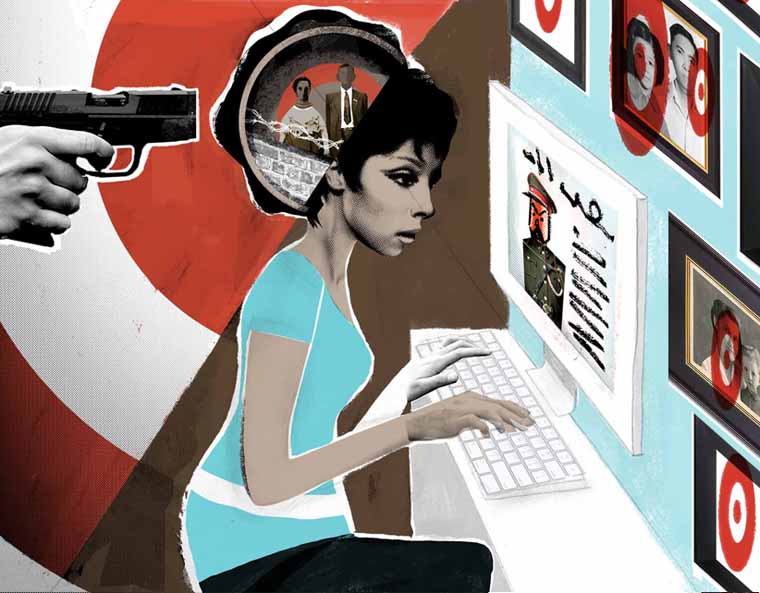‘There Is No Longer Any Respect For Journalists’
Like several Venezuelan journalists, Lisbeth De Cambra had to flee her home country to avoid arrest. The former secretary-general of the National Association of Journalists in Caracas (CNP) – a union run by journalists to defend their rights through shaping public opinion – says authorities try to pressure and intimidate reporters as well as publishers and owners of news outlets.
Miami I moved to the U.S. on December 30, 2017, to protect myself from an arrest order. As Venezuelan journalists, we have been through a lot. [The government] has persecuted, subjugated, tried to manipulate and bribe us.
Many had to leave for our safety and the safety of our families. Those still there are brave. A simple way to describe journalism in Venezuela is that “It has to be practiced standing up because truth can’t be told kneeling down.”
The pressure became systematic after I was elected to the position. As soon as I began to defend journalists as a spokesperson for CNP in February 2013, I noticed black vans with dark windows surrounding the building where I lived. They would chase me from one location to another.
From 2014, government agents would stand in front of my office, stopping and questioning me many times.
In 2014, there was an attempt to break into my house. Government security agents told me there was a search warrant and they would possibly take me to jail. I got dressed, put on a thick coat and waited at home. Then they told me they had reversed the order.
Editor’s note: Cambra was a newspaper journalist before and after becoming a spokesperson for the CNP.
There is no longer any respect for journalists. When I tried to file a complaint with the prosecutor’s office, government agents surrounded me and pulled my hair, spat on me and beat me. I was able to run out, and I hid in the offices of the newspaper El Universal.
From Venezuela to the United States
Those were very difficult times. If I had not left Venezuela, I would have been imprisoned.
The government tries to corner journalists by threatening the people in charge of newspapers and other news outlets. We received messages warning against releasing certain information. Warnings like, something could happen to us if that information goes out.
Editor’s note: Cabello is the former speaker of Venezuela’s parliament and a close ally to President Nicolas Maduro.
On one occasion, Diosdado Cabello* shared the cell phone number of two critical journalists on air during a state-sponsored television program, so that government supporters could call, harass and insult them.
Other intimidation tactics include imposing fines on journalists, threatening the media with closure, and giving false coverage of the work of some journalists to make them look bad or provoke public opinion against them.
This interview has been translated and edited for length and clarity.
Neither Venezuela’s Foreign Ministry in Caracas nor its embassy in Washington, D.C. responded to VOA’s request for comment.
